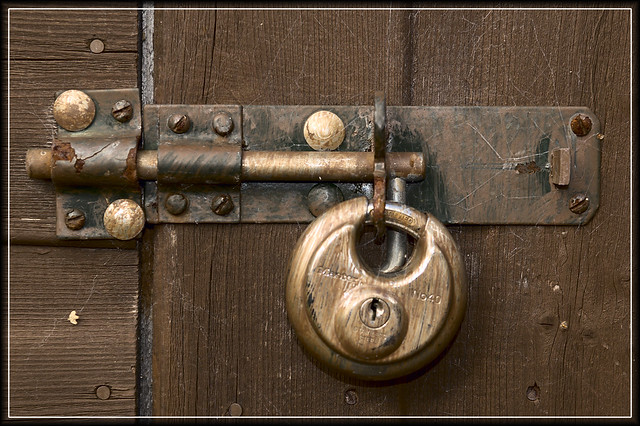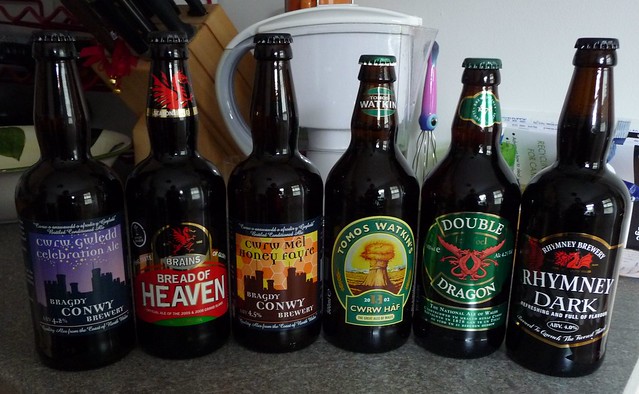Today we’re looking at the words for steel and related things in Celtic languages.
| Old Irish (Goídelc) | dúr = hard, hardy, resolute, rigid |
|---|---|
| Middle Irish (Gaoidhealg) | dúr = rigid, hard, solid; difficult; hard to bear; strict, austere; hardy, resolute; unfeeling, dour, obdurate |
| Irish (Gaeilge) | dúr = hard, rigid, solid; dour, grim, obstinate; dense, stupid, blunt, insensitive; sluggish dúramán = dull-witted, stupid person dúramánta = dull-witted, stupid dúranta = dour, grim, morose, sullen dúrantacht = dourness, sullenness dúrapóg = surly person dúrchroí = hard heart, hardness of heart dúrchroíoch = hard hearted |
| Scottish Gaelic (Gàidhlig) | dùr [duːr] = stubborn, intractable; obstinate, dull, stupid; persevering durganta = rigid, stiff, hardened; robust, rigorous; obstinate, dogged; sullen, morose; grim, forbidding |
| Manx (Gaelg) | douyr = mournful, uncomfortable, unhappy, afflicting |
| Proto-Brythonic | *dʉr = hard, hard metal, steel |
| Middle Welsh (Kymraec) | dur = steel |
| Welsh (Cymraeg) | dur [dɨːr / diːr] = steel, steel weapon; hard, cruel duraidd = steely, hard, faithful, true durawdr = steel sword or lance dur bwrw = cast steel edau ddur = wire fel y dur = true as steel, like steel llifddur = file, rasp |
| Cornish (Kernewek) | dur = steel dur dinamm = stainless steel |
| Breton (Brezhoneg) | dir = steel dir disvergi = stainless steel kazeg-dir = bicycle (“steel mare”) |
Etymology from the Latin dūrus (hard, rough, harsh), from the Proto-Indo-European *drew- (hard, fast), from *dóru (tree) [source].
Words from the same Latin root include the Scots word dour (hard, stern, severe, relentless), possibly via Middle Irish, which was also borrowed into English and means stern, harsh or forbidding; the French word dur (hard, tough, harsh), the Italian word duro (hard, tough, harsh), and the Spanish word duro (hard, form, solid) [source].
Words from the same PIE root include Celtic words for oak (tree), and the English words true, trough and trim [source].
| Irish (Gaeilge) | cruach [kɾˠuəx / kɾˠɔx] = steel cruachghreanadóireacht = steel-engraving cruachobair = steelwork cruachphláta = steel-plate cruachphlátáilte = steel-plated |
|---|---|
| Scottish Gaelic (Gàidhlig) | cruaidh [kruəj] = steel; stone anchor; hard, rocky ground |
| Manx (Gaelg) | creoighey = steel |
Etymology from the Irish crua (hard), from the Old Irish crúaid (hard, hardy, harsh, stern, strict), from the Proto-Celtic *kroudis (rude), possibly from *krū- (blood), from the Proto-Indo-European *krewh₂-. (blood) [source].
| Scottish Gaelic (Gàidhlig) | stàilinn [sdaːl̪ʲɪn̪ʲ] = steel clòimh-stàilinn = steel wool obraiche-stàilinn = steelworker ionad-stàilinn = steelworks |
|---|---|
| Manx (Gaelg) | staillin, steillyn, steillin = steel staillinagh = steel-maker, steel obbyr staillinagh = steelwork ollan staillinagh = steel wool snaie staillinagh = steel wire towse staillinagh = steelyard |
Etymology from the Old Norse stál (steel, sword), from the Proto-Germanic stahlą (steel), from the Proto-Indo-European *stek- (to be firm, stand fast) [source].
Words from the same Proto-Germanic root include steel in English, staal (steel) in Dutch, Stahl (steel) in German, and stål (steel, tool) in Danish [source].
Words marked with a * are reconstructions.
Sources: Wiktionary, Am Faclair Beag, Online Manx Dictionary, Teanglann.ie, eDIL – Electronic Dictionary of the Irish Language, In Dúil Bélrai English – Old Irish glossary, Geiriadur Prifysgol Cymru, Gerlyver Kernewek, Gerlyvyr Cernewec, Dictionaire Favereau, TermOfis, Le dictionnaire diachronique du breton, Geriafurch, English – ProtoCeltic WordList (PDF), Etymological Dictionary Of Proto Celtic











